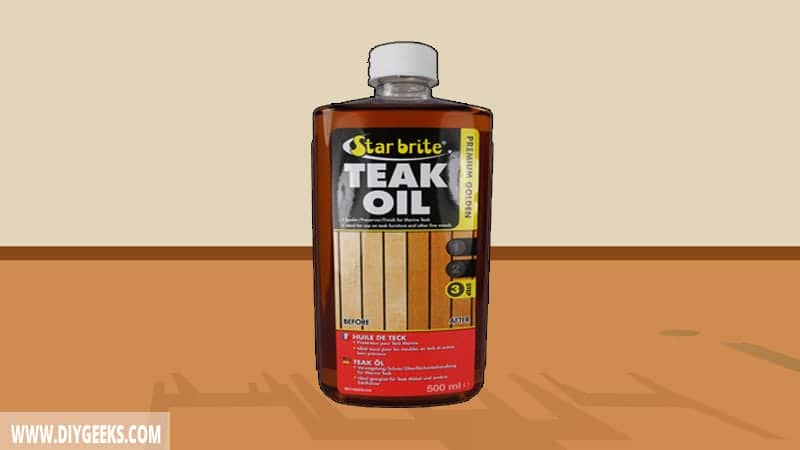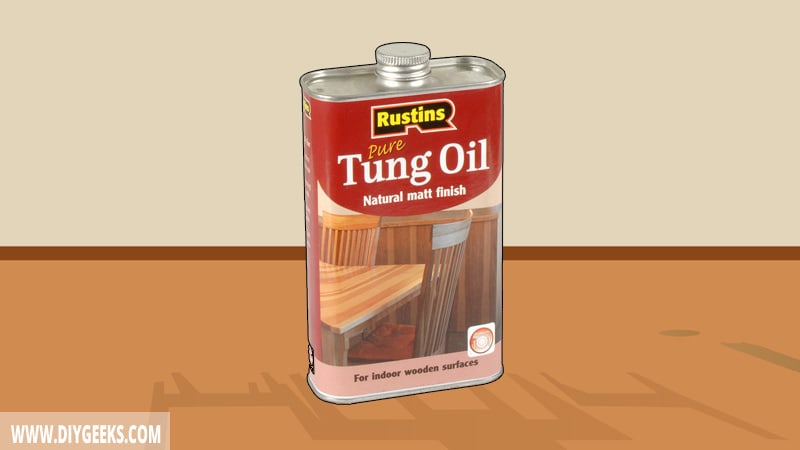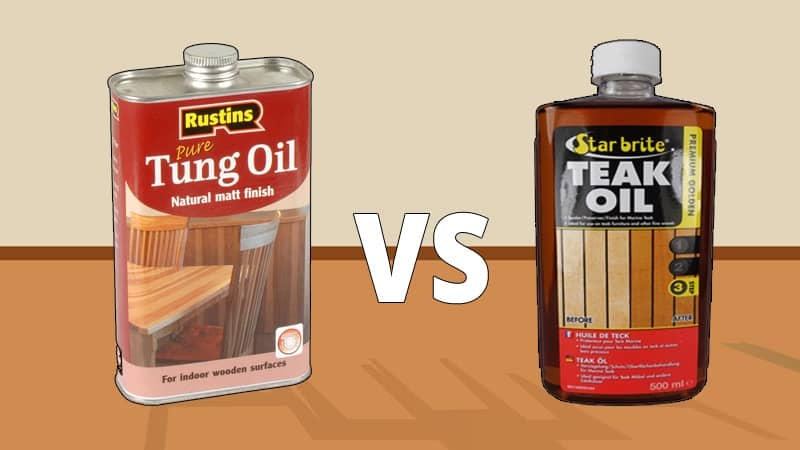Teak oil is a synthetic wood oil made by blending different oils, additives, and resins. Tung oil is a natural wood oil obtained by the Chinese Tung Tree seeds.
Tung oil has better wood protection, versatility, moisture resistance, and durability than Teak oil.
What is Teak Oil?

Teak oil is a synthetic wood oil made by mixing different oils, additives, and resins. It’s known for its dry time, ease of application, and thin viscosity that penetrates wood with ease.
Teak oil forms a glossy moisture-resistant layer over the wood and protects it from low water and moisture amounts. It’s mostly used for Teak or hardwoods, but it can be used for all wood types.
You can use Teak oil for the following things.
- To protect the wood from moisture and water damage.
- To give the wood a glossy finish.
- For high-traffic areas to prevent scratch marks on the wood.
- To enhance the color of the wood.
- Over bare or finished wood (with enough prep).
What is Tung Oil?

Tung oil (or Chinese Wood oil) is a natural oil derived from the Chinese Tung Tree seeds. The wood oil is thinned with mineral spirits as in its raw state it has a thick viscosity that can’t penetrate the surface.
Tung oil creates an amber-like semi-transparent finish over the wood and highlights surface texture and patterns. Since it doesn’t contain extra additives, it takes longer to dry and cure when compared to other wood oils.
You can use Tung oil for the following things.
- For indoor furniture and objects.
- To give wood a glossy finish.
- For decorative surfaces.
- Protects the wood from light scratches.
- Enhances the wood color.
- To highlight the details on wood.
Teak Oil vs Tung Oil
The differences between Teak oil and Tung Oil are listed below.
Wood Protection
Tung oil offers better wood protection than Teak oil as its natural formula creates a durable and moisture-resistant finish.
Teak oil offers good wood protection, but it requires often reapplication for exterior surfaces.
Dry Time
Teak oil dries faster than Tung oil as it’s formulated with extra drying agents and has a thinner viscosity.
Teak oil takes around 5 hours to dry, while Tung oil takes around 24 hours to dry between coats.
Versatility
Tung oil is more versatile than Teak oil as its natural formula makes it compatible with all surface types.
Moisture Resistance
Tung oil finish has better moisture resistance than Teak oil finish as its natural formula creates a durable finish that repels water. Tung oil is a natural wood oil, so its particles are closely packed (compact) and don’t allow moisture to penetrate.
Teak oil is formulated with different additives that have different features, so its particles are closely packed and water can penetrate through its coating.
Durability
Tung oil is more durable than Teak oil as its finish withstands water, moisture, and scratches for longer.
Application
Both wood oils are easy to apply, but you need more Tung oil coats than Teak oil coats. This means it takes longer to apply Tung oil than Teak oil.


